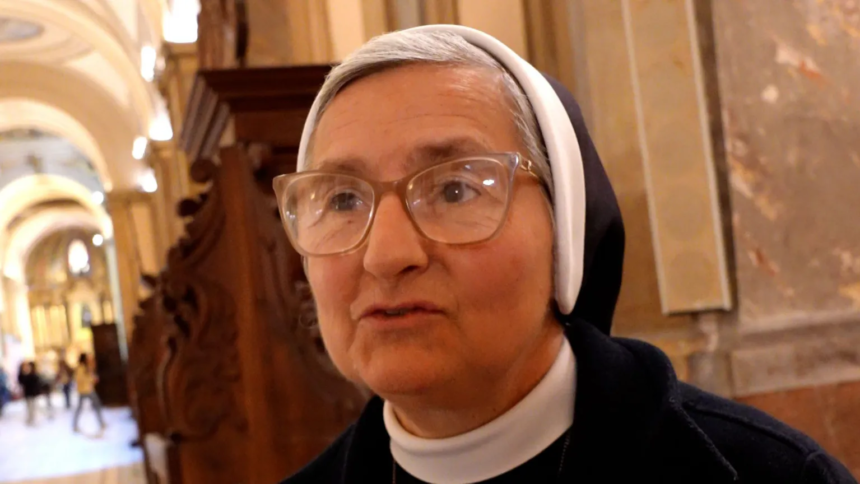The death of Pope Francis, born Jorge Mario Bergoglio, has sent shockwaves through Argentina, the land of his birth. Though he led the Catholic Church as a global figure, many Argentines are mourning not just a pope—but the absence of a father figure they felt increasingly distant from. The Pope Francis Argentina orphaned sentiment has been echoed across the country as seven days of national mourning were declared.
‘Orphans of a Father Who Loved His Homeland’
At a vigil in Buenos Aires, Archbishop Jorge Ignacio García Cuerva poignantly described Argentina as “orphans of a father who profoundly loved his country and had to learn to become the father of the whole world.” Pope Francis never returned to Argentina after becoming pope in 2013, and that absence—physical and symbolic—left a mark on the national psyche.
While some viewed his decision as a sign of commitment to global duty, others found it hard to reconcile with the pope’s deep Argentine identity. Elenir Ramazol, a nun who mourned outside Buenos Aires Cathedral, told the BBC: “The fact he never came back is a sign of the total commitment he made to the whole Church—not just to his people, to his country.”
A Pontiff Who Kept Argentina in His Heart
Despite his physical distance, Pope Francis remained connected to Argentina. Gustavo Vera, a longtime friend and activist, exchanged hundreds of letters with him. “Sometimes he commented on soccer, sometimes on tango, sometimes on cultural events,” Vera recalled. “He followed the country’s news in detail.”
Indeed, Francis visited four of the five countries bordering Argentina during his papacy—but never set foot back home. His last public comment in 2024 said, “I would like to go. It’s my people. But it hasn’t been planned yet. There are several things to sort out first.”

Political Rift and Public Perception
The pope’s hesitancy to visit Argentina may have been strategic. Vera suggests that Francis wanted to avoid his presence being politicized. “He always said he’d visit when he could help bring national unity,” referring to the country’s deep political rift between Peronists and anti-Peronists.
That rift even reached the Vatican. Before becoming president, Javier Milei called Francis “the representation of evil on Earth.” Yet after taking office, Milei softened his stance, met the pope in Rome, and formally invited him to visit. After the pope’s passing, Milei expressed deep sorrow and praised Francis’ wisdom and humility.
From National Pride to Growing Disenchantment
In 2013, the news that an Argentine cardinal had become the first Latin American pope was met with jubilation. But over time, admiration dimmed for some. A Pew Research Center survey in 2024 showed a decline in favorable views of Pope Francis in Argentina—from 91% in 2013 to 64%.
Some conservatives accused him of aligning too closely with social justice causes and left-wing politics. Others felt disappointed by his failure to publicly address the Church’s role during Argentina’s military dictatorship in the 1970s and 1980s.
Was Francis a Peronist?
Speculation over Francis’ political leanings persisted. His past connections to former President Cristina Fernández de Kirchner stirred controversy. While Francis denied being a Peronist, he remarked in a 2023 book, “If we had a Peronist conception of politics, what would be wrong with that?”
Critics seized on that statement, accusing him of harboring sympathies with a political movement that sharply divides Argentines. Nonetheless, according to friends like Vera, Francis engaged with people from all political and social sectors, showing his intent to unify rather than divide.
Legacy of a Global Citizen with Argentine Roots
Francis’ image was often featured alongside Argentine icons like Diego Maradona and Lionel Messi—yet his absence during times of national crisis, including economic collapse and soaring inflation, felt like abandonment to some. Yet others, like Alejandra Castro, a social worker, found peace in the pope’s spiritual presence: “Argentina was always in his prayers,” she said.
As Argentina grieves, many are left grappling with dual feelings—of pride in a countryman who led the world’s largest religious institution and of loss for someone they wished had come home one last time. In the words of Vera: “Rather than blaming Francis, we Argentines should ask ourselves what we were doing that meant we did not deserve the Pope’s visit.”
Category: World News, Religion & Faith, Latin American Politics
Tags: Pope Francis, Argentina, Catholic Church, Vatican, Jorge Bergoglio, Buenos Aires, Javier Milei, Cristina Fernández de Kirchner, religion and politics, national mourning









